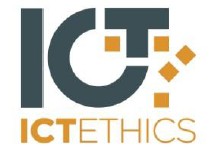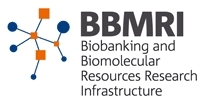ICTethics Workshops
Challenges of ICT for Public Policy
Human Security
Quantum surveillance: can biometrics be ethical?
Ambient Intelligence
Each step in the analysis and integration is concluded by an open meeting with selected participants (workshop, sounding board) where the results are checked and validated. These workshops ensure that the project gets the type of feedback that is needed to reach set goals. They also have a proactive role. Each workshop helps the consortium in planning the research of the next phase.
The workshops focus on ICT developments, ongoing and planned R&D&D, ESLA analysis and public policy. They inform the consortium and help the partners to keep their research open to a large variety of ESLA approaches.
-
Challenges of ICT for Public Policy
Location: Europe House, London, 23 March 2011.
Privacy and security pose particular challenges for society and public policy-makers. Information and communication technologies promise security, efficiency and convenience gains, and opportunities for realising cross-border cooperation for many purposes: commerce, mobility of people, goods, servies, finance, ideas and crime.
This workshop provided an opportunity to ask: How can public policy-makers meet these challenges and establish a view to the future at a time when the cyber world and real world merge?. The workshop addressed this question in a series of four sessions: (1) Security and Border Control; (2) The protection of privacy; (3) Online activities; (4) Activities and plans of public policy.
Each session began with 2-3 short presentations to inform debate and exchange of views. Invited experts were:
1) Neil Robinson, on talked about the disruptive implications of biometrics and asked if biometrics is a solution in search of a problem.
2) Kjetil Rommetveit, who spoke on ICTs and social justice.
3) Anthony House, who spoke on data minimisation, data ubiquity, and control.
4) Rafael Capurra, who talked about never to enter your real data.
5) Piotr Drobek, who explained the Polish perspective on the challenges in protecting personal data shared by government and private sector agencies.
6) Daniel Nagel, who revisited Elias Canetti on the implications of IPv6.
7) Nelson Zagalo, who spoke on gamification, bridging worlds and persons.
8) Phil Butler, who talked about the Hadrian Project.
9) Eric Atwell, Who talked about enhancing investigative capability through science and technology
10) Aivita Putnina, who spoke on politics, science and the public in decision-making on developing biotechnoloiges in Latvia.
11) Anders Sandberg, who asked when minds become clouds, who is really responsible.
-
Human Security in the context of Ambient Intelligence: In search of a shared Ethical, Social and Legal Approach
Location: Yorkshire Forward and University of Leeds, Leeds, United Kingdom, 26-27 November 2010.
This workshop addressed the ways in which we make assumptions about machine facilitated information exchange. We assume it is simple, based on common and shared legal regulations which are implemented in unproblematic ways. We imagine that information is 'hard text' and little else. We assume that in the context of combating fraud and crime, information sharing is good operational and organisational practice.
This workshop provided an opportunity for the ICTethics team to present their research and have their research challenged and informed by the real world of security experts. The debates focused on the implementation of ambitious local and EU policies to improve security and how ICTs are used to attain operational and organisational objectives. The ethical controversies of using ICTs were explored in depth. ICTethics presenters were:
Kristrún Gunnarsdóttir
Juliet Lodge
Rocco Panetta
Guido van Steendam
Pinellopi TroullinouInvited experts were:
1) Daniel Nagel, who highlighted the vulnerability of the legal framework by presenting ten ways to abuse personal data without any legal consequences.2) DSgt Andrew Staniforth, who spoke on tracking the evolution of terror from the Twin Towers to the Times Square incidents.
3) Dr Angela Carpenter, who spoke on maritime security and EU seaports.
4) Det Insp Howard Atkin, who stressed that information is not intelligence and that more advanced technology does not equal more effectiveness.
5) David Fortune, who stated that the UK is the most surveilled society not because there is a need for that but because this situation is financially driven.
6) Dr Michael Carpenter, who talked about medical information and argued that what is actually stored is opinion and not hard facts.
See full report on the workshop by Pinellopi Troullinou (ICT ethics, Leeds University).
-
Quantum surveillance: can biometrics be ethical?
Location: Darmstadt, Germany, 8-10 September, 2010. The BEST Network Conference on the "Biometric Landscape in Europe", in conjunction with BIOSIG 2010 of the Gesellschaft für Informatik e.V..
The event was organised to examine biometrics and its impact for 'mandatory' state security such as border control and national ID programmes as well as applications in e-commerce, e-banking and health monitoring, and voluntary security applications such as positive identification for fast tracking border control. Presentations and discussions on these matters revealed profound ethical, social and legal complications as well as basic technical challenges with respect to biometric performance, interoperability, scalability, system reliability and usability.
The conference involved a wide range of participants:
1) Respresentatives from various state and federal agencies, concerned with immigration, border control, policy, research and standards.
2) Respresentatives from academe, industry and airports, concerned with markets, management and various operational factors.
3) Biometric experts, working to solve particular technical problems relating to biometric recording, encryption, processing, validation, and more.
Ethical and privacy concerns were specifically addressed in a workshop panel introduced by Juliet Lodge (ICT ethics, Leeds University), titled: "Quantum surveillance: can biometrics be ethical?". The chair was Max Snijder, CEO of the EBF. Other panel members were Jan Grijpink, from the Dutch Ministry of Justice, Emilio Mordini, and Gerrit Hornung.
The main issues raised by Juliet Lodge concern the decoupling of identity from biometric persona, the commodification of citizens, mission creep, and the abdication of responsibility to machines. She challenged the audience with statements about privatised (un)accountability, and arbitrary (un)ethical (in)security, asking how, given the lack of robust, water-tight audits and the failure to ensure the security of biometric applications, the locus of authority and responsibility for outcomes could be held publicly accountable. In other words, who is in control? Participants agreed that a deeper debate on the ethical use of this technology is crucial in order to protect human rights and safeguard human dignity as biometrics become more pervasive in a wide variety of applications.
See also detailed report on the workshop panel by Pinellopi Troullinou (ICT ethics, Leeds University).
-
Workshop on Ambient Intelligence
Location: High-Tech Campus conference centre, Eindhoven, Netherlands, 7-9 July 2009.
The workshop was organised into a Research Clinic involving the ICT ethics consortium partners, and a visit to the Philips Experience Labs, the HomeLab and ShopLab.
The lab visit was prepared by Boris de Ruyter, a principal scientist at Philips Research. Laboratory staff gave tours through the Home Lab and Shop Lab, and engaged in open dialogue and reflection on their extended observations of people experiencing the various AmI applications in the labs. Among the issues that came up were:
1) Subjection to regimes: how people submit to or seek to resist the constant health rating of their choice of diet (the Home Lab).
2) Invasion of one's gaze: how people respond to a projection of an image on a shop window (in full view) of the article they were actually looking at on display. Also, the complications when more than one pair of eyes is "window-shopping" (the Shop Lab).
3) Detecting who you are: the extent to which sensors can accurately detect who you are - gender, style, etc. - in order to project suggestions on what products might be of interest such as high-heel shoes, a scarf to match your jacket, and so on (the Shop Lab).
A discussion session was organised with research leader and AmI visionary, Emile Aarts (with Boris de Ruyter), on new strategies and research perspectives for Ambience Intelligence 2.0. This session, as well as learnings from visiting the lab, informed the activities of the research clinic. In the discussion session, participants could address some of the complications that seem to accompany the development of meaningful AmI environments. Notably, the relevant publications (eg. Aarts and Encarnação, 2006; Aarts and de Ruyter, 2009), show an increasing socialisation and psychologisation of the discourse that promotes future lifeworlds with AmI. The idea is to better understand sociality, people´s moods, emotions, needs, ie., what is meaningful to them, collectively and individually, what makes their lives easier, more interesting or more pleasant. On the topic of detection and the monitoring of individuals in order to achieve meaningful human-AmI interactions, we learnt that concerns about consent or unacceptable use of intimate personal/private information do not seem to trouble research leaders. One the one hand, they express a belief in the ability of citizens to sort out such matters among themselves, albeit with "reasonable" oversight and regulation. On the other hand, those who are not attracted to AmI applications, or fear them, are simply not included in research and market development schemes. Rather, they are a figure that needs to be taken into account as the non-market. The research clinic focused on some of the implications of interacting with human emotions and needs, and how a "non-market" is reconciled with potential proliferation of AmI environments. Questions were raised about accountability (who sorts out problems/conflicts that may arise?), about the purpose-directiveness of AmI technologies, and the potentially transformative impact on how people think, act, and experience their "private" world.
References:
Aarts, E. and Encarnação, J. (eds) (2006). True Visions: The Emergence of Ambient Intelligence. Springer-Verlag.Aarts, E. and de Ruyter, B. (2009). New research perspectives on Ambient Intelligence. Journal of Ambient Intelligence and Smart Environments 1(1). pp. 5-14.













